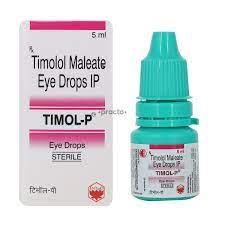A nurse is caring for a newly admited older adult client.
Nurses' Notes
Day 1, 12:00:
Transferred to medical-surgical unit from emergency department (ED) for continued care following a closed reduction and immobilization of a fracture of the right arm. Accompanied by adult child.
Client in visibly soiled night clothes with multiple stains, including what appears to be dried blood. Hair, teeth, and fingernails unclean. Strong body odor noted. Bruising of various stages noted around upper arms, back, shoulders, and neck area.
Client is soft-spoken, speaks almost in a whisper, does not make eye contact with nurse.
Client looks at their child before answering the nurse's questions and, when asked how the injury occurred, mumbles "I don't know. Ask them." Client's child states, "He gets confused sometimes. I can answer your questions."
Which of the following interventions should the nurse recommend to include in the client's plan of care?
Select all that apply.
Tell the client's child that they will be reported for maltreatment of the client.
Ask the client's child to provide details regarding the client's fractured arm.
Discuss respite care options with the client's child.
Speak to the client privately.
Provide legal advice to the client regarding power of atorney.
Correct Answer : B,C,D
The correct answers are b, c, and d.
a. It is not appropriate for the nurse to threaten the client's child with reporting for maltreatment without
further assessment and evidence.
b. Asking the client's child to provide details regarding the client's fractured arm will provide additional information about the client's injury and help the nurse assess the potential for abuse or neglect.
c. Discussing respite care options with the client's child may help alleviate any caregiver stress or burden, and ensure the client's continued care and safety.
d. Speaking to the client privately will help establish trust and rapport, and allow the client to disclose any concerns or issues that they may not feel comfortable sharing in front of their child.
e. Providing legal advice regarding power of atorney is not within the scope of nursing practice and should be referred to a legal professional. Additionally, the client's capacity to make decisions and appoint a power of atorney should be assessed before providing such advice.
Nursing Test Bank
Naxlex Comprehensive Predictor Exams
Related Questions
Correct Answer is B
Explanation
Choice A Reason:
There is no need to take a zinc supplement with timolol.
Choice B Reason:
"I should check my heart rate while taking this medication."This statement indicates an understanding of the teaching. Timolol is a beta-blocker eye drop used to lower intraocular pressure in clients with glaucoma. It can be systemically absorbed, and one of its potential side effects is bradycardia (slow heart rate). Therefore, clients taking timolol should be instructed to monitor their heart rate regularly, and if they notice a significant decrease in heart rate, they should notify their healthcare provider.
Choice C Reason:
Timolol does not typically darken the color of the eyes.
Choice D Reason:
Timolol does not dilate the eyes; it works to reduce intraocular pressure.

Correct Answer is D
Explanation
Choice A Reason:
The client wanting to talk about the diagnosis with nursing staff indicates a desire for communication and support, which may be an expression of hope or a way to cope with the diagnosis.
Choice B Reason:
Requesting a second opinion suggests that the client is actively seeking more information and exploring potential treatment options, which is not indicative of hopelessness.
Choice C Reason:
Having a decreased energy level can be a common physical and emotional response to a terminal illness but does not directly indicate hopelessness on its own. It may reflect the physical and emotional toll of the diagnosis and its treatment.
Choice D Reason:
The client makes funeral arrangements is correct. Making funeral arrangements is often seen as an indication of hopelessness in the context of a recent terminal illness diagnosis. It suggests that the client has accepted the inevitability of their death and is preparing for it. While making arrangements can be a practical and important step, it may also indicate a sense of hopelessness or resignation.
Whether you are a student looking to ace your exams or a practicing nurse seeking to enhance your expertise , our nursing education contents will empower you with the confidence and competence to make a difference in the lives of patients and become a respected leader in the healthcare field.
Visit Naxlex, invest in your future and unlock endless possibilities with our unparalleled nursing education contents today
Report Wrong Answer on the Current Question
Do you disagree with the answer? If yes, what is your expected answer? Explain.
Kindly be descriptive with the issue you are facing.
